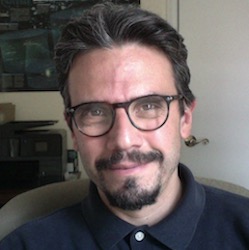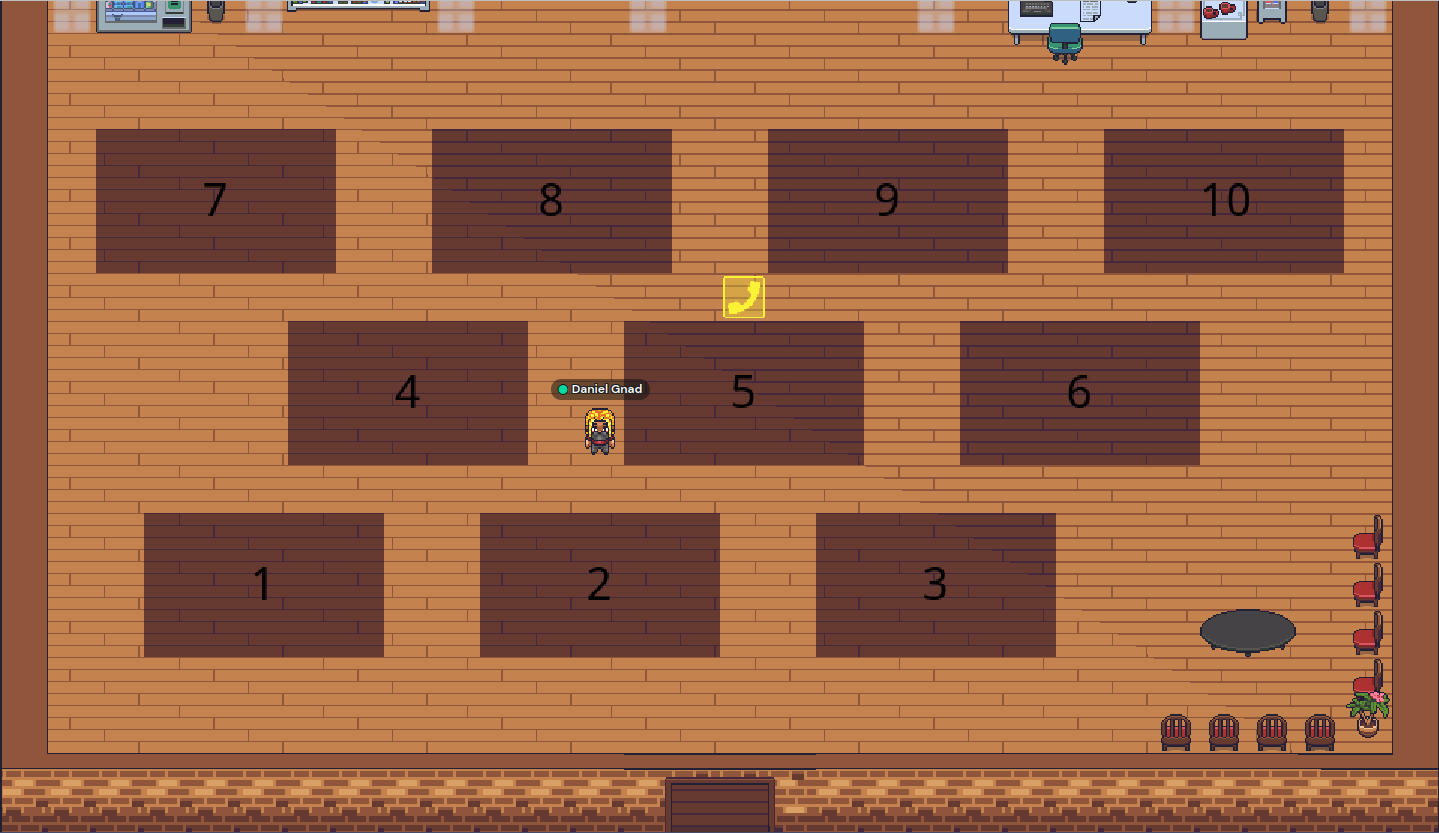Dates
- Monday, 28 March, 2022 (extended!) - Submissions Due
- Saturday, 30 April, 2022 - Notification
- Friday, 3 June, 2022 - Camera-ready Due
- Monday, 13 June - Workshop Date
Workshops
HPlan
ICAPS Hierarchical Planning Workshop 2022 (HPlan 2022)
An ICAPS'22 Workshop
Singapore online
June 13 (Monday), 2022
The motivation for using hierarchical planning formalisms is manifold. It ranges from an explicit and predefined guidance of the plan generation process and the ability to represent complex problem solving and behavior patterns to the option of having different abstraction layers when communicating with a human user or when planning co-operatively. The best-known formalism in the field is Hierarchical Task Network (HTN) planning. In addition, there are several other hierarchical planning formalisms, e.g., hybrid planning (incorporating aspects from POCL planning), Hierarchical Goal Network (HGN) planning (incorporating a hierarchy on goals), or formalisms that combine task hierarchies with timeline planning (e.g. ANML). Hierarchies induce fundamental differences from classical planning, creating distinct computational properties and requiring separate algorithms from non-hierarchical planners. Many of these aspects of hierarchical planning are still unexplored. Thus, we encourage any contribution, independent of the underlying hierarchical planning formalism, and want to provide a forum for researchers to discuss the various aspects of hierarchical planning.
Topics of Interest
Topics of interests include but are not limited to:
- theoretical foundations, e.g., complexity results
- heuristics, search, and other solving techniques for plan generation
- techniques and foundations for providing modeling support
- challenges and lessons learned from modeling systems (using hierarchical models)
- applications of hierarchical planning
- plan explanation for hierarchical models
- hierarchical plan repair techniques
- techniques for verifying solutions of hierarchical planning problems
- techniques for automated learning and synthesis of hierarchical models
Submission Details
The formatting guidelines (author kit, etc.) are the same as for ICAPS 2022. Like at the main conference, there will be a high quality double-blind review process against the standard ICAPS criteria of significance, soundness, scholarship, clarity, and reproducibility. However, submissions may be less evolved than at the main conference.
We have two categories:
- Technical research papers (short or long) and
- Challenge papers (short).
Technical research papers are just like standard conference papers, but may be less evolved. The purpose of challenge papers is to report on or to make aware of interesting/important problems in Hierarchical Planning and to encourage discussion at the workshop -- not to present some significant contribution.
Authors may submit *long papers* (up to 8 pages plus up to one page of references) or *short papers* (up to 4 pages plus up to one page of references). The purpose of short papers is to encourage publications of more preliminary results; challenge papers need to be short papers. In case of acceptance, the full 9, resp. 5, pages can be used for the paper, most notably to address the reviewers' comments.
Papers must be completely anonymous to enable double-blind reviewing. Submissions will be made via easychair
If you are interested in presenting work that was accepted or published at a top-tier conference or journal, please contact the organizers. We will not include such a paper into our proceedings, but we are happy to discuss options for presenting such work.
Policy on Previously Published Material and Double-Submissions
Please be aware that we put all accepted papers into a single proceedings that we will make publicly available (check out previous years' editions if interested). This proceedings is non-archival meaning that you will keep all copyrights. However we will strictly not include any paper where at the time of putting the proceedings online, portions of that paper are under the copyright of some other publisher. The reason is that normally the rights granted to the authors are rather restricted; they might be allowed to upload the specific entire paper on their own institution's webpage, but this does not include allowing others (like us workshop organizers) to distribute that material or parts of it. This means that all submitted work must be entirely original -- just as at any conference. If in doubt, contact the organizers.
We do allow and also explicitly encourage the submission of papers that at the time of submission are under review at another conference. Note that other conferences usually allow material that is under review at a workshop in parallel, but do not allow papers currently being under review at another archival conference or journal (HPlan is non-archival). If however the paper is also accepted at the respective conference, it will not be included in our proceedings to prevent any possible copyright infringements. We will still mention the paper as being accepted at the workshop and expect the paper be part of the program (and thus presented like all other papers), but no final paper can be submitted for our workshop/proceedings. Instead, the proceedings will include links to the respective conference paper version. Please check out websites and proceedings of the previous years to see examples of how this looks.
Important Dates
- Paper submission:
Friday, 18 Marchnew: Monday, 28 March - Notification:
Friday, 15 Aprilnew: Saturday, 30 April - Camera-ready paper submission:
Friday, 10 Junenew: Friday, 3 June - Publish list of accepted papers: before HPlan (early June, tba)
- Proceedings/papers online: before HPlan (tba)
- HPlan Workshop: Monday, 13 June
The reference timezone for all deadlines is UTC-12, i.e., AoE.
Note that ICAPS requires acceptance notification by 15 April. If this is going to be postponed, we might be able to adjust deadlines (most notably paper submission). Extended! :)
Invited Talk

Ugur Kuter
Research Fellow, Smart Information-Flow Technologies (SIFT)
Bio: Dr. Kuter is studying intelligence and intelligent behavior in both individuals and groups, human and computational. He is particularly interested in understanding and developing intelligent systems that can observe, think, and (inter-)act with other such systems, including humans. Over the years, a large part of Dr. Kuter's research is involved particularly around Automated (AI) Planning, Machine Learning, Reasoning with / about Uncertainty, Automation Self-Confidence, Knowledge Representations, Graph Analysis, Semantic, Social Networks, Game Theory, Evolutionary Computation, and recently, Quantum Cognition. Dr. Kuter has co-authored more than 100 peer-viewed research publications, including several best papers and other awards.
Ugur Kuter gives an invited talk on:
Hierarchies in Decentralized Collaborative Planning
This talk will introduce a framework for collaborative decentralized planning for a spectrum of user-centered and fully-autonomous, and thus, diverse, elastic, and possibly virtual, collaborative teams. We stand on the great strides from previous distributed AI ideas, combining those with modern advances in AI planning, thereby reflecting and explicitly representing and working with issues such as information locality, uncertainty, communications, and others. We will discuss the essential features of this framework, argue why we found hierarchical representations and reasoning important in our applications. We will describe some of the challenges that we face in this domain, and some of the initial approaches we took towards addressing these challenges.
Find the recoding of the talk on YouTube.
Accepted Papers
You find both the entire proceedings as well as all individual papers below. The entries also contain links to the individual presentations (if available). You can also use the YouTube playlist.Additionally Presented Papers
As written somewhere above, HPlan accepts applications for the presentation of recently published papers in the context of hierarchical planning -- to make them more visible to our community. This year, we accepted two such presentations:- Formula synthesis in propositional dynamic logic with shuffle
by Sophie Pinchinat, Sasha Rubin, and François Schwarzentruber
published at AAAI 2022. Watch a short teaser presentation. - On Heuristics for Parsing-based Verification of Hierarchical Plans with a Goal Task
by Simona Ondrčková, Roman Barták, Pascal Bercher, and Gregor Behnke
published at FLAIRS 2022
Schedule
| 12:00 - 12:10 pm | Welcome |
| 12:10 - 1:00 pm | Teaser talk session 1
|
| 1:00 pm - 2:15 pm | Poster session 1: same as talks above, each poster is presented on the area with the number as given above |
| 2:15 pm - 3:15 pm | Invited talk: Ugur Kuter (+ Q&A) |
| 3:15 pm - 3:30 pm | Break |
| 3:30 pm - 4:30 am | Teaser talk session 2
|
| 4:30 pm - 6:00 pm | Poster session 2: same as talks above, each poster is presented on the area with the number as given above |
- add 2 to get UTC+2/CEST (e.g., Germany)
- add 10 to get UTC+10 (e.g., Sydney/Canberra)
- subtract 7 to get (US east cost) UTC-7 (e.g., Arizona state)
Attending HPlan
ICAPS will be online, and therefore also HPlan will be fully online.
All presentations, i.e., the poster teaser talks, as well as the invited talk, will be done via zoom. The zoom link is shared in the HPlan gather.town room.
Poster presentations will be done via screensharing on gather.town. Every speaker will have a dedicated position. The position is identical to the number of the talk in the schdedule. This is, how the workshop room looks like, which also shows the numbers of the private areas for poster sessions:

Various
- In 2020, the International Planning Competition (IPC) was on Hierarchical Task Network Planning. Visit ipc2020.hierarchical-task.net for results, participating planners, planning benchmarks, and more!
- HPlan has a YouTube channel, which hosts the recorded talks (including invited talks) since HPlan 2020. You also find links to individual playlists on HPlan's website.
- We have a mailing list (via google groups) for hierarchical planning with currently approx. 70 subscribers. The list is low traffic, moderated, and only allows mails related to hierarchical planning! Interested? Drop Pascal an email.
Previous HPlan workshops
On the HPlan website you find (among other things) a list of bibtex entries for all accepted papers in all HPlan editions, including the 2022 edition once available. Individual workshop pages of past editions are available here:
Or simply http://hplanYYYY.hierarchical-task.net (with YYYY being the year)
Program Committee
- Ron Alford, The MITRE Corporation
- Gregor Behnke, University of Amsterdam
- Pascal Bercher, The Australian National University
- Arthur Bit-Monnot, LAAS-CNRS
- Alberto Camacho, University of Toronto
- Maurício Cecílio, Magnaguagno PUCRS
- Lavindra de Silva, University of Cambridge
- Juan Fernández-Olivares, University of Granada
- Alban Grastien, The Australian National University
- Daniel Höller, Saarland University, Saarland Informatics Campus
- Jane Jean Kiam, Universität der Bundeswehr München
- Songtuan Lin, The Australian National University
- James Mason, Jet Propulsion Laboratory
- Simona Ondrčková, Charles University
- Sunandita Patra, IIT Kharagpur
- Dominik Schreiber, Karlsruhe Institute of Technology
- Vikas Shivashankar, Amazon Robotics
- Shirin Sohrabi, IBM
- David Speck, University of Freiburg
- Álvaro Torralba, Aalborg University
- Julia Wichlacz, Saarland University
- Ying Xian Wu, The Australian National University
- Zhanhao Xiao, Sun Yat-sen University
Organising Committee
- Pascal Bercher, pascal.bercher at anu.edu.au
- Jane Jean Kiam, jane.kiam at unibw.de
- Arthur Bit-Monnot, abitmonnot at laas.fr
- Ron Alford, ralford at mitre.org
